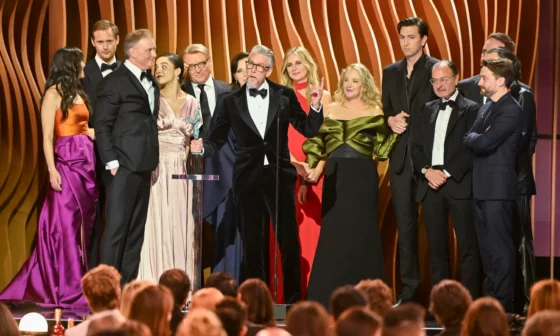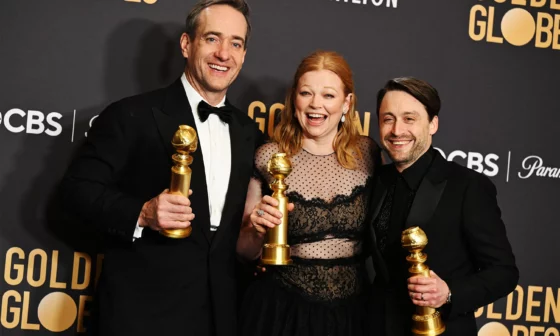
If you prefer the Steven Spielberg who is formally impeccable, in love with depicting the flow of information and tightly coiling drama through exceptional blocking – as opposed to the more bombastic, larger-than-life, adventure-seeking Spielberg we’ll likely see later this year with Ready Player One – then The Post delivers in spades.
Yet for all its formal qualities, what it can’t quite deliver is a film that will eventually reside in the upper-echelon of Spielberg’s oeuvre. Instead, it seems like one that’s destined to be somewhat forgotten and lost in the midst of better dramas and more memorable blockbusters as the years roll by.
That’s not to say the film isn’t entertaining, and often enthralling, because when you team Spielberg up with Tom Hanks and Meryl Streep, there’s always going to be a certain magic captured. Unfortunately, for a film that was infamously hastily put together and shot within six months, there is a certain extra spice lacking.
It’s clear why Spielberg chose to make a film championing the freedom of the press in the current climate, and as a somewhat sentimental, old fashioned newspaper thriller, it works, but the narrative as a whole isn’t quite entrancing enough to make it rise to the heights of All The President’s Men – a clear influence – or even Tom McCarthy‘s Oscar-winning Spotlight from a few years ago.
Because while those films were all about the sleuthing for information and the search for truth in a world where that idea is sadly becoming increasingly murky, The Post already has the truth in its lap. The story that Hanks and Streep – the former a reporter at the Washington Post, the latter the owner – want to tell is already there.
There’s an excellent scene where Hanks and a bevy of reporters lay out the information regarding government lies and the progress in the Vietnam war on the floor, having to pour through it because page numbers have been cut off, but this is about as close to sleuthing the film gets.
That’s not to say the film needs more detective work, it’s just that the film has a higher mountain to climb in terms of keeping its audience engaged when much of the work these kinds of films usually hang their hat on is already complete a third of the way through.
The main crux of the film is The Washington Post deciding on whether they can, and whether they will, publish the story in spite of President Nixon’s threats to take them to court.
While the back and forth between Hanks’ idealistic reporter and lawyers worried about court dates pleading their case to Streep, who has the final say, makes for great cinema in spurts, it’s not quite enough to rise the film above a certain ceiling.
It would be easy to say this is Spielberg on autopilot, but that would be harsh, considering how well made the film is. His decision to focus on the printing and the gathering and distributing of information is key to understanding the hard work the film is championing. What makes The Post fail to rise above simply ‘good’ territory is the limitations it practically puts on itself.
It wants to be a relatively simple story about the freedom of the press and is happy to be that. In the hands of another director with a different cast, it could almost be a relatively small-budgeted indie film.
The film is able to branch out from its news-centric plot and also highlight Streep’s position in a male-dominated environment – again elucidated by excellent blocking when she’s often surrounded by men attempting to, sometimes literally, steer her in their preferred direction – and becomes somewhat of a feminist film as Streep begins to exert her confidence and independence on a patriarchal board who still consider her father the owner rather than her.
Overall, The Post is a relatively safe film, and does sometimes veer into the heavy sentimentality Spielberg’s critics often accuse him of, yet ironically, it’s a safe film with a focus on rebellion and protesting.
It might not be Spielberg’s best work, but it is one of the clearer depictions of his ideals, and ends on a note reminding us that truth is always worth searching and fighting for, because even the smallest, ostensibly insignificant kernels of information, can lead to something far larger and world-changing.
The Post is in cinemas now.
#Peace.Love.ThePost






